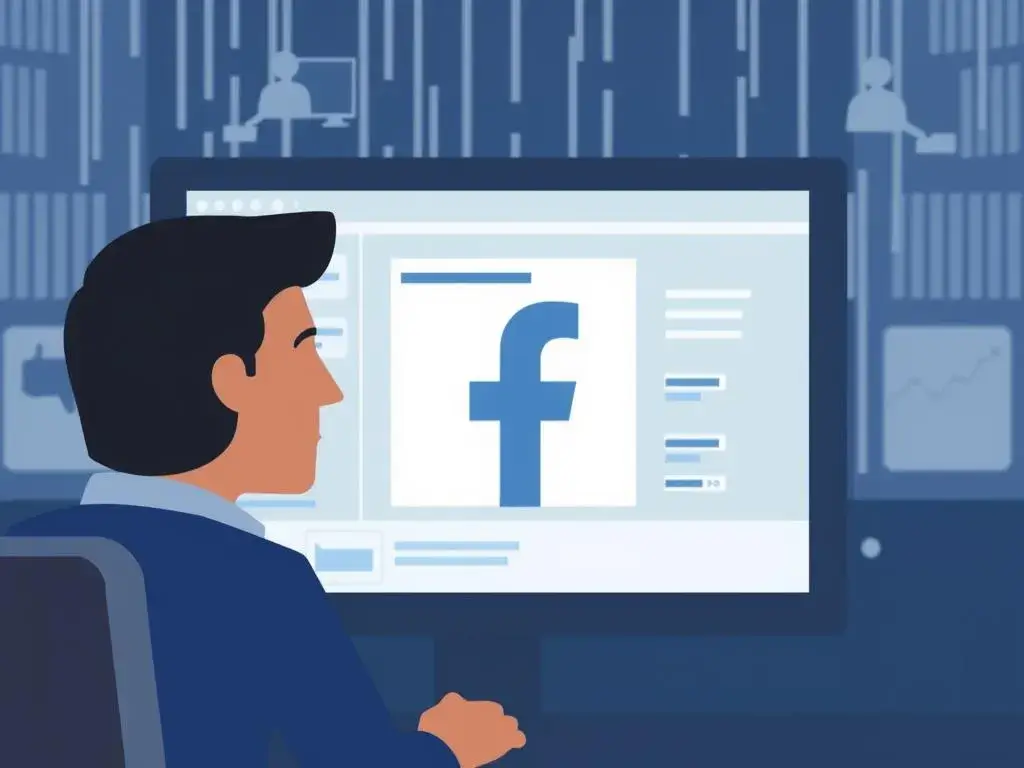Explore the case study of Facebook-Cambridge Analytica data scandal, a significant breach of user privacy that impacted millions. Learn how the crisis unfolded, Facebook’s response, and the consequences for user trust and data privacy laws. Discover the ethical leadership of Mark Zuckerberg during this tumultuous period and the measures implemented to secure user data moving forward.
Facebook-Cambridge Analytica Data Scandal: A Case Study
Facebook, a global American social media company founded in 2004 by Mark Zuckerberg (Chairman and CEO), offers social networking services for individuals to connect with friends and family and express their views. However, the company recently faced a significant public relations crisis: the case study of Facebook-Cambridge Analytica data privacy scandal.
This incident involved the improper sharing of Facebook users’ data with Cambridge Analytica, a data mining and political strategy firm, which subsequently used this information during Donald Trump’s presidential campaign for over two years.
How the Data Breach Occurred
In April 2010, Facebook launched Open Graph, a platform enabling third-party apps to access Facebook users’ personal data with their permission. In 2013, Cambridge University researcher Aleksandr Kogan developed an app called “thisisyourdigitallife.” This app prompted users to complete a psychological profile. Approximately 270,000 individuals downloaded the app, granting Kogan access to their personal information and, crucially, to the data of their Facebook friends.
Facebook’s design at the time permitted the app to collect data not only from those who directly participated in the survey but also from their entire social network. This information was then shared with Cambridge Analytica, which utilized it to understand individuals’ personalities and target political advertising effectively. Cambridge Analytica obtained this data in direct violation of Facebook’s rules and did not disclose that the information would be used for political campaigning.
Facebook’s Initial Response and Subsequent Developments
Facebook became aware of this data violation in 2013, specifically the unauthorized access to data from both app users and their friends. Facebook demanded that Cambridge Analytica delete all the data, and Cambridge Analytica agreed to do so. However, Aleksandr Kogan never deleted the data, and Facebook failed to verify whether the deletion had occurred as promised. In 2014, Facebook revised its rules for external developers, restricting them from accessing users’ friends’ data without explicit consent.
Leading up to the 2016 Presidential elections, Cambridge Analytica, lacking time to generate its own campaign data, re-engaged Aleksandr Kogan. Kogan had created another Facebook app that paid users to take a personality test. In 2016, “The Guardian” reported that Cambridge Analytica was assisting Ted Cruz’s presidential campaign by using psychological data from their previous research. Christopher Wylie, a former Cambridge Analytica employee, revealed to The Guardian: “We exploited Facebook to harvest millions of people’s profiles.
And built models to exploit what we knew about them and target their inner demons. That was the basis the entire company was built on.” The New York Times independently verified that user information held by Cambridge Analytica was publicly accessible online. Despite the scandal originating in 2014, Facebook did not take responsibility until it became a global outrage in 2018, waiting over two years before suspending Cambridge Analytica.
Global Exposure and Facebook’s Apology
In mid-March 2018, The Guardian and The New York Times exposed the scandal. By 2018, Facebook had still not informed affected users about the breach, despite knowing that Cambridge Analytica possessed the data for over two years. This constituted a violation of technology ethics principles, particularly Facebook’s terms and conditions with its users. Facebook admitted its oversight in not thoroughly reviewing the terms of the app that accessed the data of 87 million people and issued an apology for the “breach of trust.”
Following widespread news coverage, Facebook CEO Mark Zuckerberg publicly apologized on CNN for the Cambridge Analytica situation, characterizing it as an ‘issue,’ a ‘mistake,’ and a ‘breach of trust.’ His apology highlighted deficiencies in Facebook’s policies. In his CNN interview, he stated, “We have a responsibility to protect your data, and if we can’t, then we don’t deserve to serve you.” Facebook’s CTO Mike Schroepfer also informed U.K. lawmakers that Facebook had failed to notify the U.K.’s data protection watchdog about the data sharing with Cambridge Analytica, acknowledging it as a mistake.
Consequences and User Reaction
As a result of Facebook’s negligence, many users were angered, leading to mass account deletions, supported by influential figures like WhatsApp founder Brian Acton. The hashtag #DeleteFacebook also trended, further accelerating account removals. Facebook’s stock prices consequently declined. To address the issue, Mark Zuckerberg appeared on CNN, stating that Facebook had already revised some rules: “We also made mistakes, there’s more to do, and we need to step up and do it.”
According to U.K. data protection law, the sale or use of personal data without user consent is prohibited. In 2011, after a Federal Trade Commission (FTC) complaint, Facebook agreed to obtain clear consent from users before sharing their data. The FTC then initiated an investigation into whether Facebook had violated user privacy protections. Both U.S.A. and U.K. lawmakers are conducting their own investigations. Mark Zuckerberg issued a personal letter of apology on behalf of Facebook in major newspapers, committing to changes and reforms in privacy policy to prevent future breaches.
This incident severely eroded user trust and violated privacy policy laws. Customers trust companies with their personal information, and a company’s name and reputation are crucial for building and maintaining that trust. Brand quality is paramount for company growth and development. Facebook, as a prominent social networking site with a market monopoly, enjoyed user trust that their shared personal details and those of their friends would remain confidential and not be disclosed without consent.
Facebook’s Response and Solutions
Mark Zuckerberg introduced several solutions to mitigate and ideally eliminate the problem. After a five-day silence following the public announcement of the scandal, he took full responsibility, apologizing to Facebook users, stakeholders, and the broader community. He also outlined steps to prevent similar breaches in the future.
By 2014, Facebook had already implemented policies prohibiting developers from accessing user information. However, after the 2018 scandal, Facebook further strengthened these policies. For instance, if a user does not use a Facebook-linked application for three months, the company will discontinue developer access to any data related to that individual. Third, developers who had prior access to all user data from 2014 onwards are now required to submit an audit or face removal from the platform.
Fourth, Cambridge Analytica was formally requested to delete all data collected from the “Thisisyourdigitallife” app, subject to thorough auditing by cyber-crime experts. Fifth, Facebook announced changes to its privacy settings, empowering users to delete any data collected by Facebook’s network. While these features were already available, the company aimed to remind users of their control over their data. Finally, Facebook committed to opening a public archive containing all political advertisements.
This archive will display the amount of money spent on advertising, demographic data of the audience reached, and the number of impressions generated. While these revisions are a starting point, restricting developer access could help Facebook rebuild trust. However, given the dynamic and evolving nature of technology, these solutions may only address the current situation and might not offer a long-term preventative effect.
Mark Zuckerberg as an Ethical Leader
Despite Facebook’s numerous data privacy challenges, Mark Zuckerberg’s handling of the case study of Facebook-Cambridge Analytica scandal demonstrated his qualities as an ethical leader. He exhibited several behaviors associated with ethical leadership, including taking responsibility. He swiftly acknowledged fault, apologized, and assumed full responsibility for Facebook’s unethical actions. His public apology also showcased humility, wisdom, and a willingness to learn.
The third attribute was his honesty and straightforwardness, providing a direct and clear plan to rectify the problem. Most of Zuckerberg’s solutions were implemented in early 2018, making a comprehensive evaluation of their overall impact premature. Nevertheless, Facebook has since adopted more stringent data privacy measures, and no related concerns have emerged. However, the likelihood of another privacy breach remains uncertain due to continuous technological advancements, making such glitches potentially inevitable.
📰 Facebook–Cambridge Analytica Data Scandal – Case Study (2013-2018)
🔍 What Happened
- 2013: Cambridge University academic Aleksandr Kogan launched the Facebook quiz app “This Is Your Digital Life”.
- 320 k users took the quiz but the app harvested data of about 87 million friends without their consent.
- Data sold to Cambridge Analytica (CA), a U.K. political consultancy hired by Ted Cruz and later Donald Trump 2016 campaigns for micro-targeted ads.
⚙️ Technical & Business Mechanics
- Facebook Graph API v1.0 (pre-2015) allowed apps to pull friends’ data—default opt-in at the time.
- CA built psychographic profiles (OCEAN scores) and matched them to voter files, enabling personalised political messages.
- No hacking occurred; data was obtained legally under 2012-14 API rules but re-used in breach of platform terms—hence Facebook called it “a breach of trust, not a data breach”.
💥 Fallout & Quantified Impact
- Market cap: Facebook lost ~$36 bn in 2 weeks after the March 2018 expose.
- User trust: #DeleteFacebook trended; US active-user growth slowed for the first time in Q2 2018.
- Regulatory fines:
- FTC: $5 bn (2019) – largest privacy penalty in U.S. history.
- SEC: $100 m for misleading investors about data misuse.
- Class-action settlement: $725 m (2022) covering ~250 m U.S. users (≈ $2-3 per claimant).
- Platform changes:
- Graph API v1.0 shut down (2015) and all friend-data access revoked by 2018.
- Ad transparency tools launched; political-ad targeting restricted in EU & US.
🎓 Strategic & Ethical Lessons
- “Free platform” ≠ “free data” – user consent must be granular, informed, revocable.
- API design is governance – default-open friends’ data created systemic risk.
- Reg-tech lag – regulators moved faster than internal audit; GDPR (2018) & EU Digital Services Act (2022) now mandate audit trails for ad-targeting.
- Reputational beta > regulatory beta – stock dropped 18 % in 10 days, long before fines arrived.
- Competitive moat paradox – data network effects became liability moat once public trust cracked.
📊 Exam / Interview Take-away
Use the scandal to illustrate:
- Principal-agent failure (users = principals, Facebook = agent).
- Negative externality of data network effects.
- Event-study metric: -18 % abnormal return in 10 days post-expose.
- Regulatory catalyst: GDPR fines template, DSA ad-transparency rules.
Bottom line:
Cambridge Analytica turned “likes” into votes, but exposed that lax API design + opaque consent = billion-dollar liability—a textbook case for data-governance, ethics, and platform-risk management in any MBA finance or strategy class.










Leave a Reply